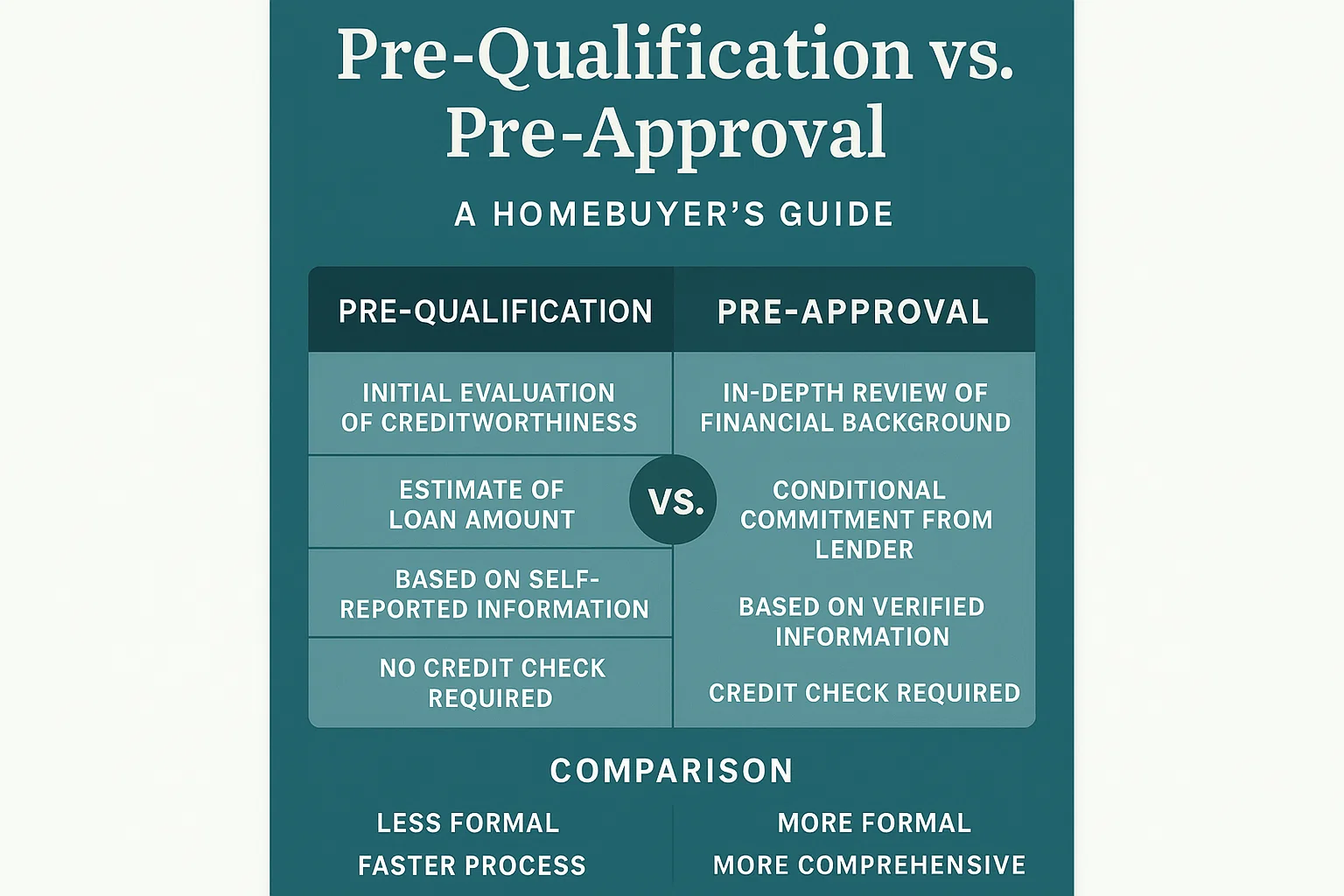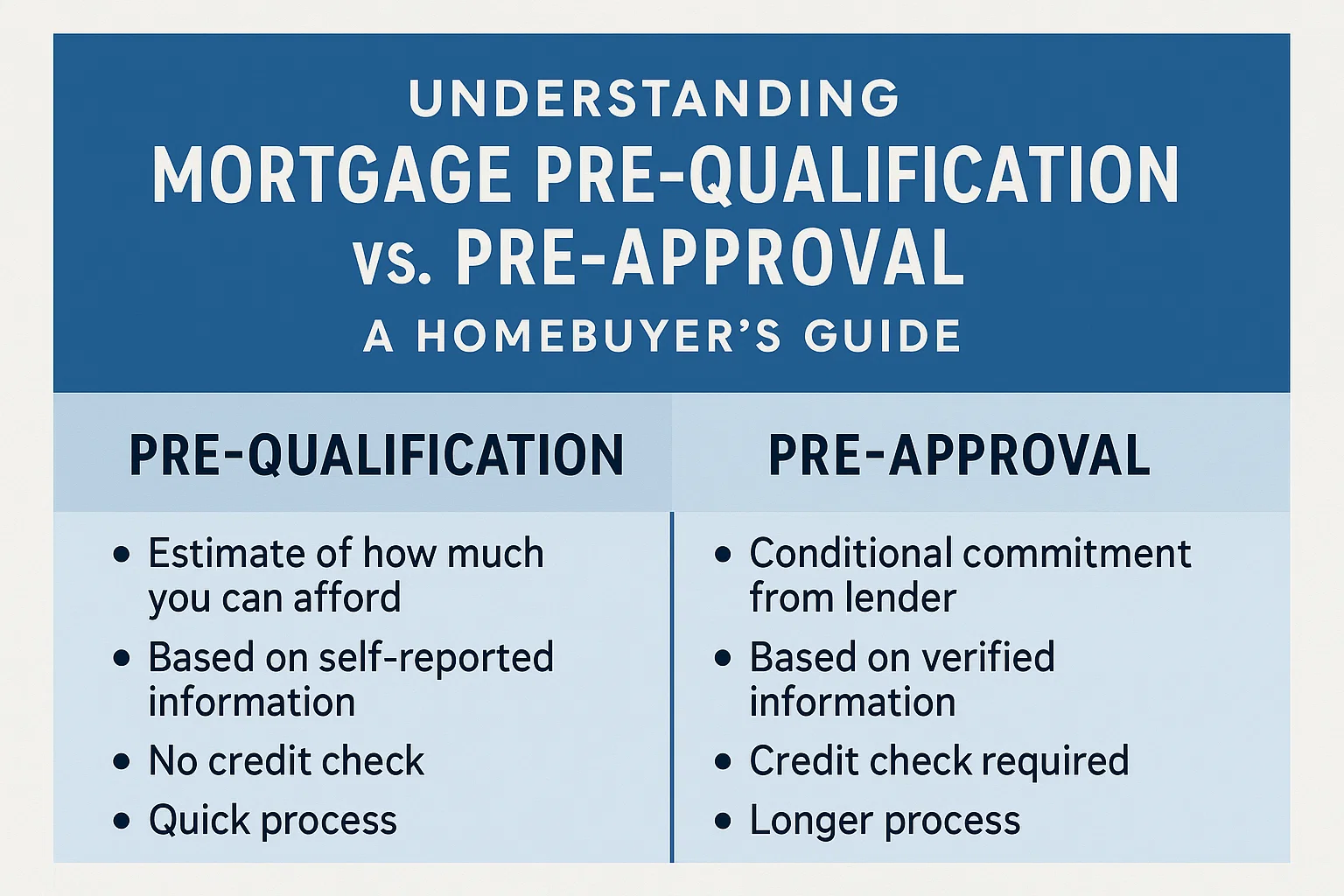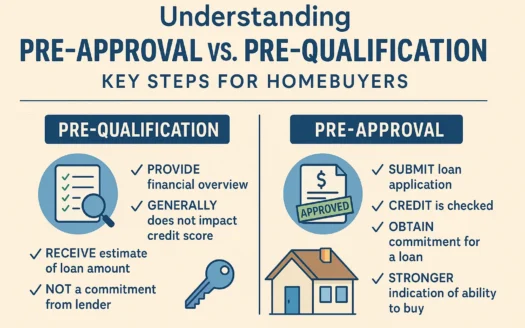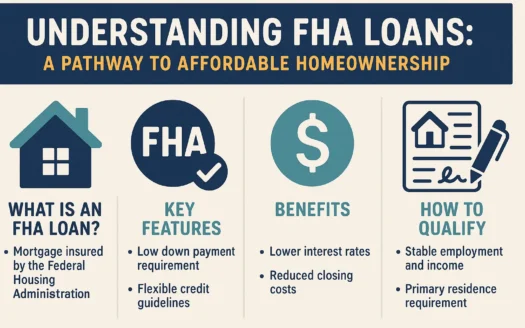Understanding Mortgage Pre-Qualification vs. Pre-Approval: A Homebuyer’s Guide

Understanding Mortgage Pre-Qualification vs. Pre-Approval: A Homebuyer’s Guide
What Is Mortgage Pre-Qualification?
Mortgage pre-qualification is an optional step that provides a rough estimate of how much you might borrow based on self-reported financial details. It’s a useful starting point for first-time buyers or those with recent financial changes, but it holds no formal weight in the homebuying process. Here’s what you need to know:
- Involves a soft credit check (no impact on credit score).
- Offers general estimates for loan amounts and interest rates.
- Helps gauge readiness to buy a home but doesn’t guarantee lender approval.
Pre-qualification is ideal for early planning but won’t strengthen your offer when negotiating with sellers.
What Is Mortgage Pre-Approval?
Mortgage pre-approval is a lender-verified commitment that strengthens your position as a serious buyer. It involves a thorough review of your finances and creditworthiness, resulting in a conditional offer for a specific loan amount. Key details include:
- Requires a hard credit check (temporarily affects credit score).
- Provides a formal pre-approval letter valid for 90 days.
- Demonstrates financial credibility to sellers, improving offer competitiveness.
Pre-approval is essential when you’re ready to make offers, as it signals your ability to secure financing.
Pre-Qualification vs. Pre-Approval: Which Should You Choose?
Your choice depends on your homebuying stage:
When to Choose Pre-Qualification:
- Pros: Quick process, no documentation, estimates budget range.
- Cons: Non-binding, lacks credit analysis, insufficient for offers.
When to Choose Pre-Approval:
- Pros: Lender-backed offer, strengthens negotiations, clarifies budget.
- Cons: Requires detailed paperwork, longer processing time.
Required Documentation
For Pre-Qualification:
- Basic income and employment details.
- Estimated down payment and desired loan amount.
- Permission for a soft credit inquiry.
For Pre-Approval:
- Recent pay stubs, tax returns, and bank statements.
- Proof of assets and down payment funds.
- Permission for a hard credit check.
Final Tips for Homebuyers
Use pre-qualification to set realistic expectations early in your search. Opt for pre-approval once you’re serious about making offers. Both steps streamline your journey, but only pre-approval carries weight in competitive markets. Always consult lenders to clarify terms and ensure alignment with your financial goals.




